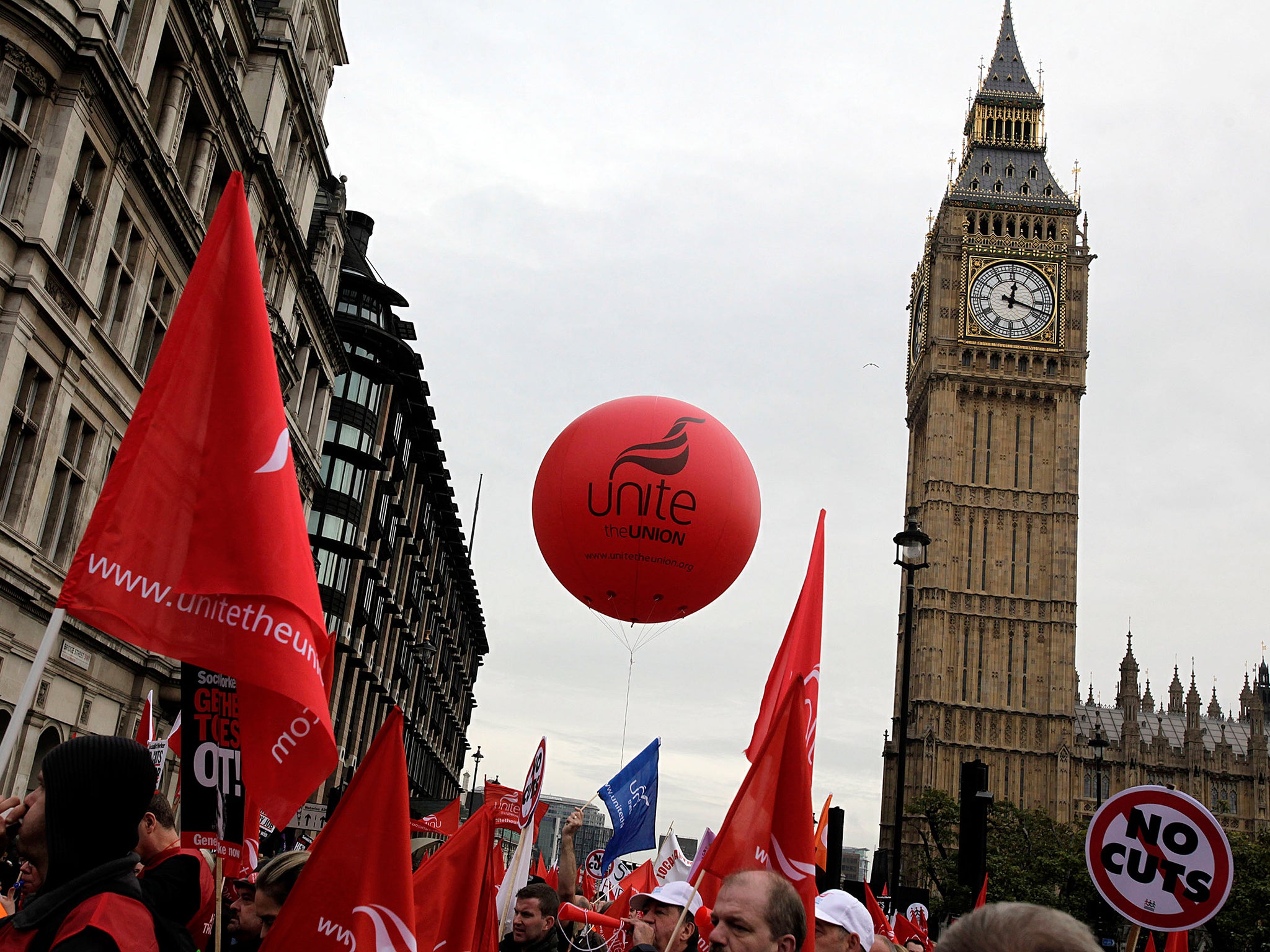Trade unions are speaking out against Brexit – when will Labour start to listen?
At past moments of the Labour Party leadership turning in on itself and ignoring wider national needs, notably in the 1930s and 1980s, it was the trade unions who kicked Labour back into the real world


Your support helps us to tell the story
From reproductive rights to climate change to Big Tech, The Independent is on the ground when the story is developing. Whether it's investigating the financials of Elon Musk's pro-Trump PAC or producing our latest documentary, 'The A Word', which shines a light on the American women fighting for reproductive rights, we know how important it is to parse out the facts from the messaging.
At such a critical moment in US history, we need reporters on the ground. Your donation allows us to keep sending journalists to speak to both sides of the story.
The Independent is trusted by Americans across the entire political spectrum. And unlike many other quality news outlets, we choose not to lock Americans out of our reporting and analysis with paywalls. We believe quality journalism should be available to everyone, paid for by those who can afford it.
Your support makes all the difference.Britain’s giant industrial unions have signed a statement calling for the UK to stay in the EU’s single market and customs union in contrast to the fence-sitting by the Labour leader Jeremy Corbyn who still equivocates and plays semantic games about “a” not “the” customs union as do his shadow cabinet team.
By contrast, two of the biggest unions in Britain – Unite the Union, and the GMB with a combined membership of more than 2 million, have signed a statement calling on the Government to “maintain British membership in the single market and customs union with all rights and obligations.”
The smaller Community Union, formerly known as the Iron and Steel Trades Confederation with a long history representing steel industry workers in Britain and one of the most respected affiliated unions in the Labour Party also signed the statement.
The declaration also calls on the Government to “uphold freedom of movement for skilled workers and working time regulation principles” and to “maintain UK membership in the European Aviations Safety Agency (EASA) and the European Space Agency (ESA)”.
The declaration was adopted by the British trade unions November last year when they met with other metal trade unions in Europe representing aviation industry workers.
What is astonishing is that there was no reporter awake enough to grasp the importance of this declaration which puts these major trade unions on the opposite side of the road from the still equivocating Labour leadership.
Alas, trade union reporting has died out as part of modern British journalism. Political reporters cover what party bigwigs or unelected peers say but pay almost no attention to trade unions even though they are at the front line of Brexit jobs losses and worries about the future of their millions of members’ pay and security of employment.
The UK aviation sector employs 340,000 workers and has an annual turnover of £66bn. More than a million items are annually sent across the British Channel during the construction of aircraft engines, satellites, wings or the final assembly of an aircraft. If Britain leaves the single market and give up membership of the customs union, positions both Theresa May and Jeremy Corbyn advance, the unions argue this “would paralyse established value and supply chains and seriously harm competitiveness of the sector in the UK and the EU27.”
Contrary to statements from some Labour MPs that it is necessary to leave the single market to end freedom of movement, the unions argue that “The suspension of freedom of movement would also mean more hurdles for the sector to contract highly-skilled personnel from Europe or other parts of the world and could quickly lead to a tremendous skills shortage and put research programmes and technological improvement into severe danger.”
This clarity of language has not so far been on offer from any member in the Labour leadership team. At past moments of the Labour Party leadership turning in on itself and ignoring wider national needs, notably in the 1930s and 1980s, it was the trade unions who kicked Labour hard back into the real world.
So far the general secretaries of major unions are not ready to criticise Jeremy Corbyn who is still basking in the glow of his June 2017 success even if May has 53 more Tory seats than Labour. But union leaders are finding a much tougher language than Labour grandees. The public should pay more attention to what the elected leaders of Britain’s workers are saying out loud and in public.
Denis MacShane is the former Minister of Europe and author of Brexit, No Exit. Why (in the End) Britain Won’t Leave Europe (IB Tauris).
Join our commenting forum
Join thought-provoking conversations, follow other Independent readers and see their replies
Comments